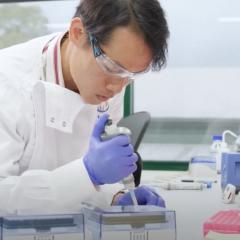Health practitioners will be better equipped to predict self-harm or suicide attempts in adolescents as a result of a University of Queensland study on psychosis in young people.
The UQ Centre for Clinical Research’s Associate Professor James Scott said the research showed that adolescents who had psychotic experiences were 13 times more likely to attempt suicide and 11 times more likely to self-harm in the following 12 months than those who had never had a psychotic episode.
“Psychotic experiences and psychological distress should serve as warning signs that a young person is at high risk of self-harm or attempting suicide,” he said.
“We would encourage health practitioners to ask young people about psychotic symptoms such as hearing voices or feeling paranoid when they are assessing their mental health and the likelihood of self-harm.
“This would ensure that the appropriate support, health resources and adequate risk-management plans are in place to reduce suicide attempts in this age group.”
The study is believed to be the first of its kind to examine whether psychotic experiences, psychological distress (high levels of anxiety or depression) or both are associated with self-harm and suicide attempts.
“It’s also known that approximately one in every 12 adolescents has psychotic experiences, or odd or unusual beliefs such as paranoid ideas or hallucinations,” Associate Professor Scott said.
“These symptoms are much more common than was once thought.
“Suicide is the leading cause of death among young people in Australia, and non-suicidal self-harm occurs in approximately one in every seven young people, so it is crucial that this issue is addressed.”
The study found that teens who had experienced psychological distress but not psychotic experiences were three times more likely to self-harm over the following 12 months and five times more likely to attempt suicide than those who had not experienced psychological distress.
The research involved 1975 Australians aged 12 to 17 over a 12-month period.
The paper, Psychotic experiences and psychological distress predict contemporaneous and future non-suicidal self-injury and suicide attempts in a sample of Australian school-based adolescents, can be found here.
Media: Kate Sullivan, Marketing Communications Officer, UQ Centre for Clinical Research
(07) 3346 6041 0421 819 807 or k.sullivan4@uq.edu.au



